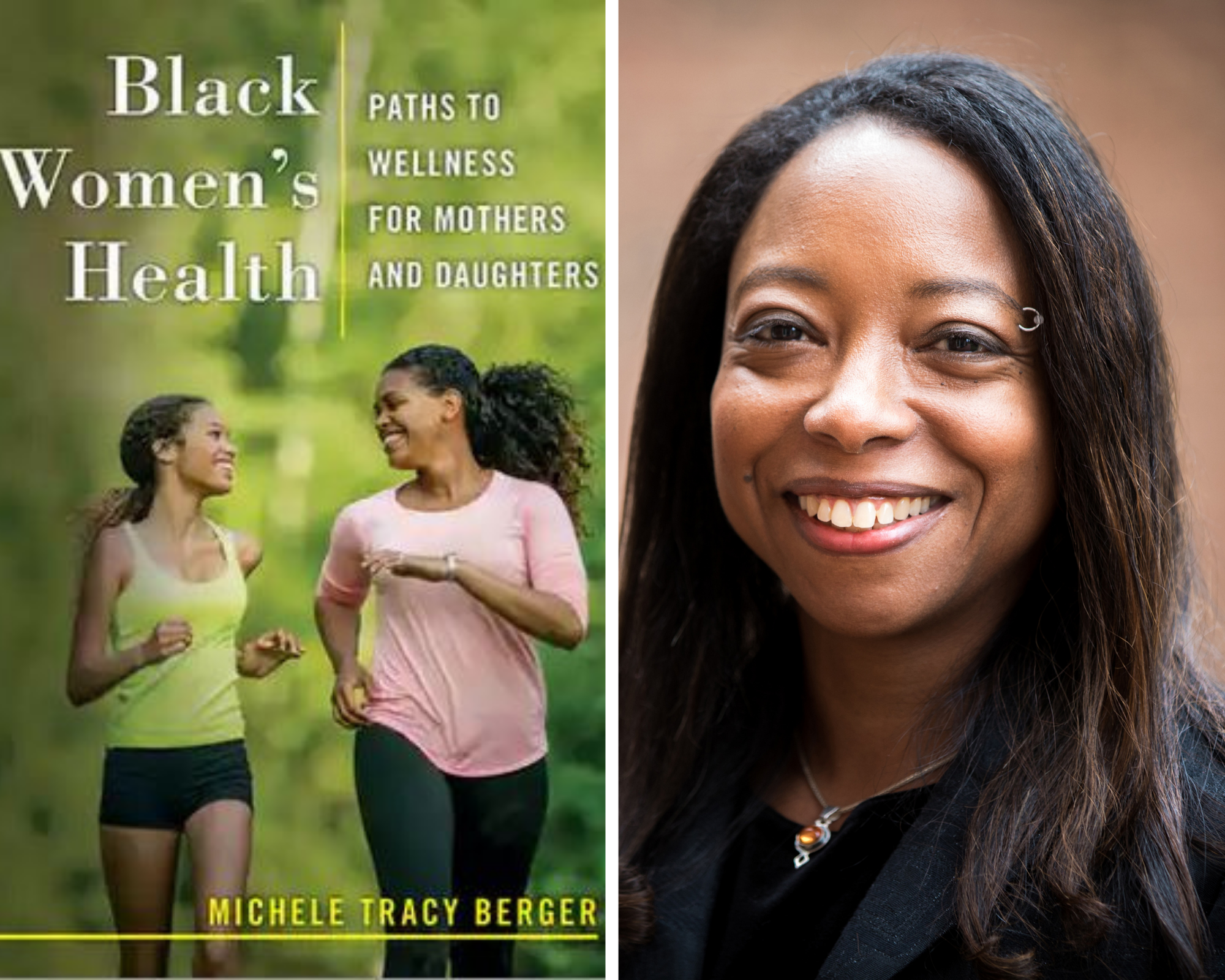
 Bookmark This is a feature that highlights new books by College of Arts & Sciences faculty and alumni, published the first week of each month.
Bookmark This is a feature that highlights new books by College of Arts & Sciences faculty and alumni, published the first week of each month.
Featured book: Black Women’s Health: Paths to Wellness for Mothers and Daughters,” (NYU Press, April 2021) by Michele Tracy Berger.
Q: Can you give us a brief synopsis of your book?
A: Black Women’s Health explores the meaning and practice of health in the lives of Southern African American women and their adolescent daughters.
From heart disease and diabetes to HIV and obesity, Black women and girls face serious health risks, lagging behind their white counterparts by every measure of health, well-being and fitness. In Black Women’s Health, I explore why this is the case, exploring how the health needs of Black women and girls are uniquely rooted in their experiences with racism, sexism and class discrimination.
Black Women’s Health draws its data from focus groups that I conducted with African American mothers and their adolescent daughters ages 12–18 in North Carolina. These discussions focused on health, sexuality, intimacy and transitions to womanhood. I analyze resonant themes that emerge from the focus groups and develop a micro-theory about similarities and differences in external and internal barriers to health for mothers and their daughters (e.g. diet, exercise, and racialized and gendered interactions with medical providers), intergenerational legacies of caring and the use of outdated gendered scripts by mothers in communicating about sexual health. I show how Black mothers communicate with their daughters about health, sexuality and intimacy, including how they attempt to promote healthy living standards even as they navigate widespread, systemic challenges.
Q: How does this fit in with your research interests and passions?
A: My research, teaching and practice all focus on intersectional approaches to studying areas of inequality, especially racial and gender health disparities. As a qualitative oriented social scientist, my scholarship tends to situate research participants as knowers and interpreters of their own experiences.
My main research contributions have been a) to center marginalized communities’ experiences of health using qualitative and participatory research methodologies, and b) to advance theoretical and methodological conceptualizations of intersectionality for both the scholarly community and broader publics. I have advanced these contributions primarily through producing book-length works.
My new book is the first monograph that focuses on African American mother and daughter relationships and their role in shaping health practices. It is also the first monograph to critically situate health experiences of Southern African American women and girls.
Q: What was the original idea that made you think: “There’s a book here?”
A: Black women’s voices are infrequently theoretically centered in health literatures about how they experience and co-create their health, and it is even rarer for Black girls to be taken into account as reliable knowers. My book explores the real-life meanings and everyday practices of health (i.e., mental, physical, emotional and sexual) for the African American mothers and daughters whose narratives comprise the research. In drawing on fieldwork and focus group materials, it became evident while writing that exploring the findings through a series of articles would be insufficient.
Q: What surprised you when researching/writing this book?
A: My research reveals that some African American mothers may struggle with providing accurate and helpful sexual health information to their daughters, despite their overall desire to do so. Additionally, many mothers have not had an opportunity to process their own possible regret or challenges about their own sexual history, which may contribute to sending contradictory messages to their daughters about sexual intimacy.
Q: Where’s your go-to writing spot, and how do you deal with writer’s block?
A: I enjoy writing in my home office. I usually write in the mornings, and I set the space by playing instrumental music. Most often I write in 50-minute blocks of time. To combat writer’s block, I keep a Post-it note near my computer with a quote by the late author Barbara Sher that states, “Projects are very long, moods are very short.” Moods come and go, so I’ve learned just to stick to my routine. At the end of a writing session — whether I produce 250 words or 2,000 — it’s the cumulative regularity of writing that edges out potential writer’s block.
Berger is associate professor of women’s and gender studies. Her work spans the fields of public health, sociology, and women’s and gender studies. She serves on Ms. Magazine’s Scholars Board.
Nominate a book we should feature (published in about the last six months) by emailing college-news@unc.edu. Find some great books to add to your reading list by checking out our College books page.
